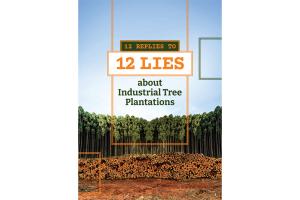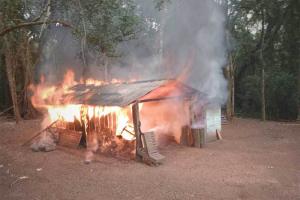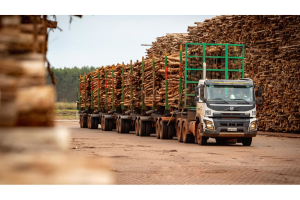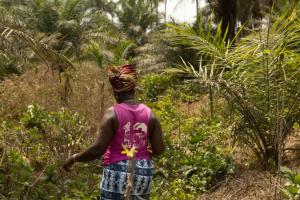Pulp and Paper
Large-scale tree monocultures to produce pulp and paper, along with the infrastructure and pulp mills that come with these plantations, have been expanding onto communities’ fertile lands. They have destroyed forests and grasslands, especially in Latin America, Asia and Southern Africa. The species used are fast-growing and not native to these countries. They include varieties of eucalyptus, acacia and pine trees.
Publications
23 September 2025
The corporate lies behind the ever-increasing expansion of industrial tree plantations.
Publications
21 September 2022
This publication exposes the most common misleading statements currently used by plantation companies. It’s is based on the briefing "Ten Replies to Ten Lies" written by Ricardo Carrere in 1999.
Bulletin articles
22 September 2025
This is the story of how we, a group of indigenous peoples and peasants in Colombia, have come together under the name Cajibío Interethnic and Intercultural Territory of Life (TEVIIC, by its Spanish acronym), to face one of the world's largest multinational paper and cardboard manufacturers: Smurfit Westrock. Our goal is to achieve Agrarian Reform through autonomy and concrete actions.
Bulletin articles
22 September 2025
Seja no Brasil, em meio a monocultivos de eucalipto, ou na Tailândia, cercada por plantações de dendê, as mulheres estão na linha de frente da resistência a esses projetos que exploram e devastam a terra em busca de lucro. Ainda que em contextos diferentes e com particularidades culturais específicas, esses projetos ameaçam a autonomia, os corpos e a cultura dessas mulheres de forma muito parecida. E a resposta que elas dão também parte de uma base comum: a resistência baseada nos laços comunitários e nas raízes ancestrais. É isso que nos contam duas ativistas camponesas em luta pela terra, cada uma de um desses países.
Bulletin articles
23 April 2025
Articles
13 March 2025
WRM expresses its solidarity with the struggle of women from the Rural Landless Workers' Movement (MST) in Brazil. On this day, March 13, they are taking various actions across the country in favor of agrarian reform and against the multiple forms of violence perpetrated against women, under the slogan “Agribusiness means violence and environmental crimes. The struggle of women is against capital”. One of the actions is taking place in the state of Espírito Santo, where 1000 women have occupied an area belonging to Suzano.
Bulletin articles
24 October 2024
Besides the direct impacts on communities’ lives, eucalyptus monoculture plantations represent absurd and obscene inequality. A group of 45 community people with whom we spoke was shocked to learn that it would take them 2,300 years of non-stop work to collectively earn the same amount that a single Portuguese family, one of the owners of the plantation company they work for, earned in one single year from the profits of their shares in the company.
Other information
22 August 2024
On July 5, 2024, three peasant families were violently evicted in Paraje San Lorenzo 2, in the municipality of Wanda, in the Argentine province of Misiones. The provincial police carried out the eviction, in collaboration with the multinational company, Arauco. During the operation, the police destroyed the ten-hectare farm which had been the families' livelihood for a decade.
Bulletin articles
28 June 2024
How many tree plantations are there, and how big are they? In what regions and countries are they located? What are the differences among the various "players" who are directly involved in implementing tree plantations for the carbon market? This article presents figures and information seeking to answer these and other questions.
Bulletin articles
27 June 2024
Behind every tree plantation developed for carbon offsets, there are external agents seeking to profit from increased control over the land. And while they all have the same colonial approach, these plantations can vary widely: they can be large-scale monocultures or schemes with smallholder farmers; they can include exotic species or native species; and some of them may even exist on paper only.
Bulletin articles
19 December 2023
For decades, Mapuche communities have been resisting the impacts of a forestry model based on large-scale monoculture plantations. In this interveiw, Pablo Reyes Huenchumán, spokesperson for the Paillakawe community, explains how they organize, and what the main challenges are in the struggle to recover their territory and maintain their culture.
Bulletin articles
25 October 2023
More than seven percent of Uruguay's territory is covered with monoculture tree plantations. A handful of companies have been behind this massive expansion—which has occurred mostly over watersheds and prairies—,with devastating consequences. This year, almost half of the urban population had no access to drinking water—an imminent warning of the drastic change that is needed for Uruguay to maintain its water.










